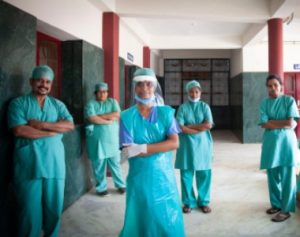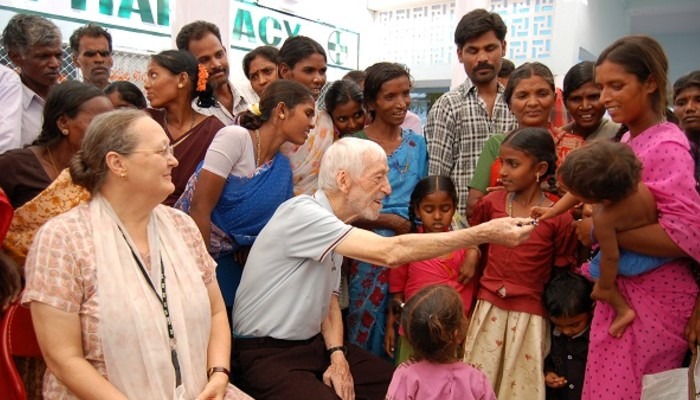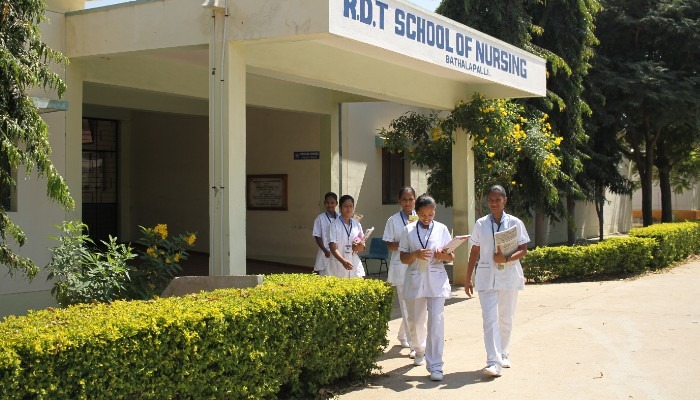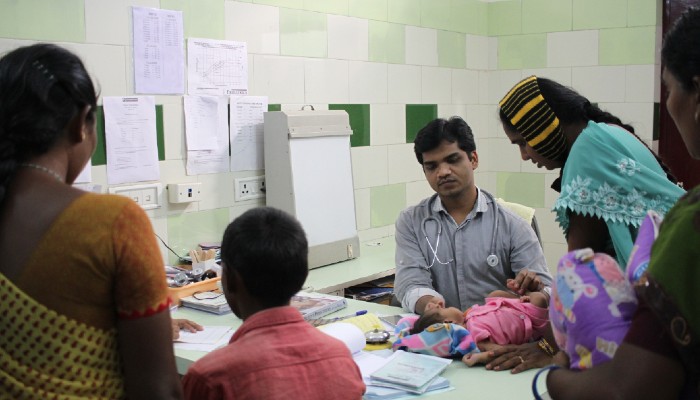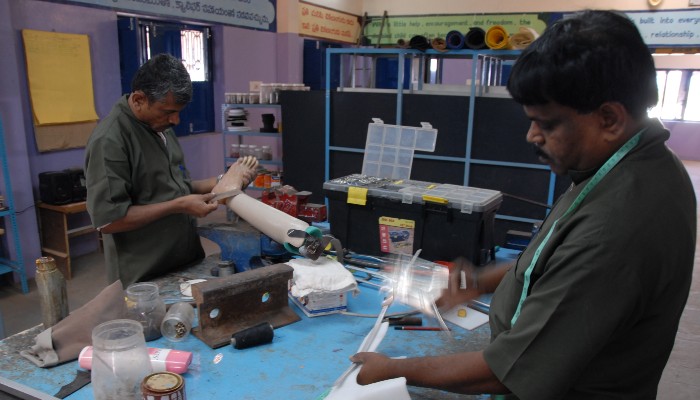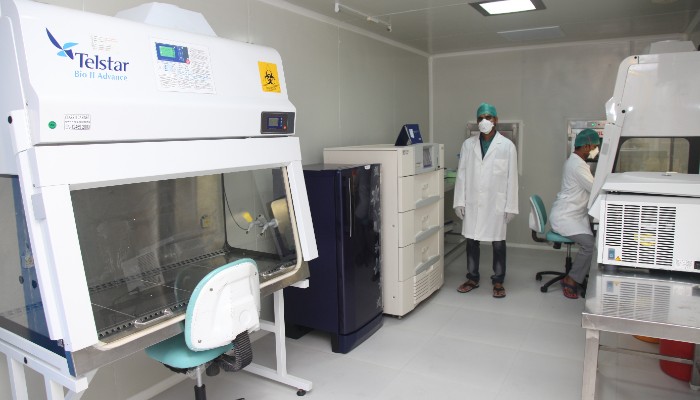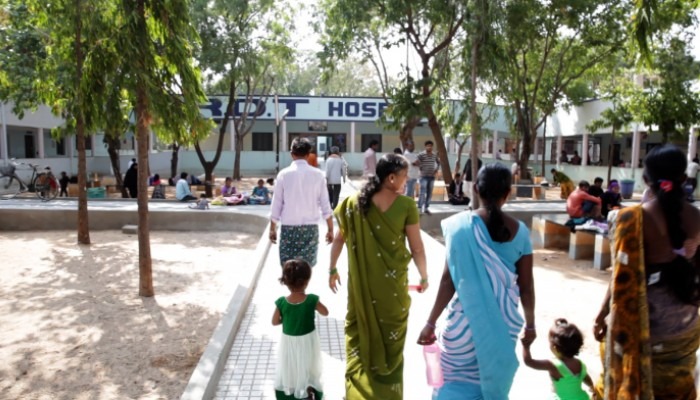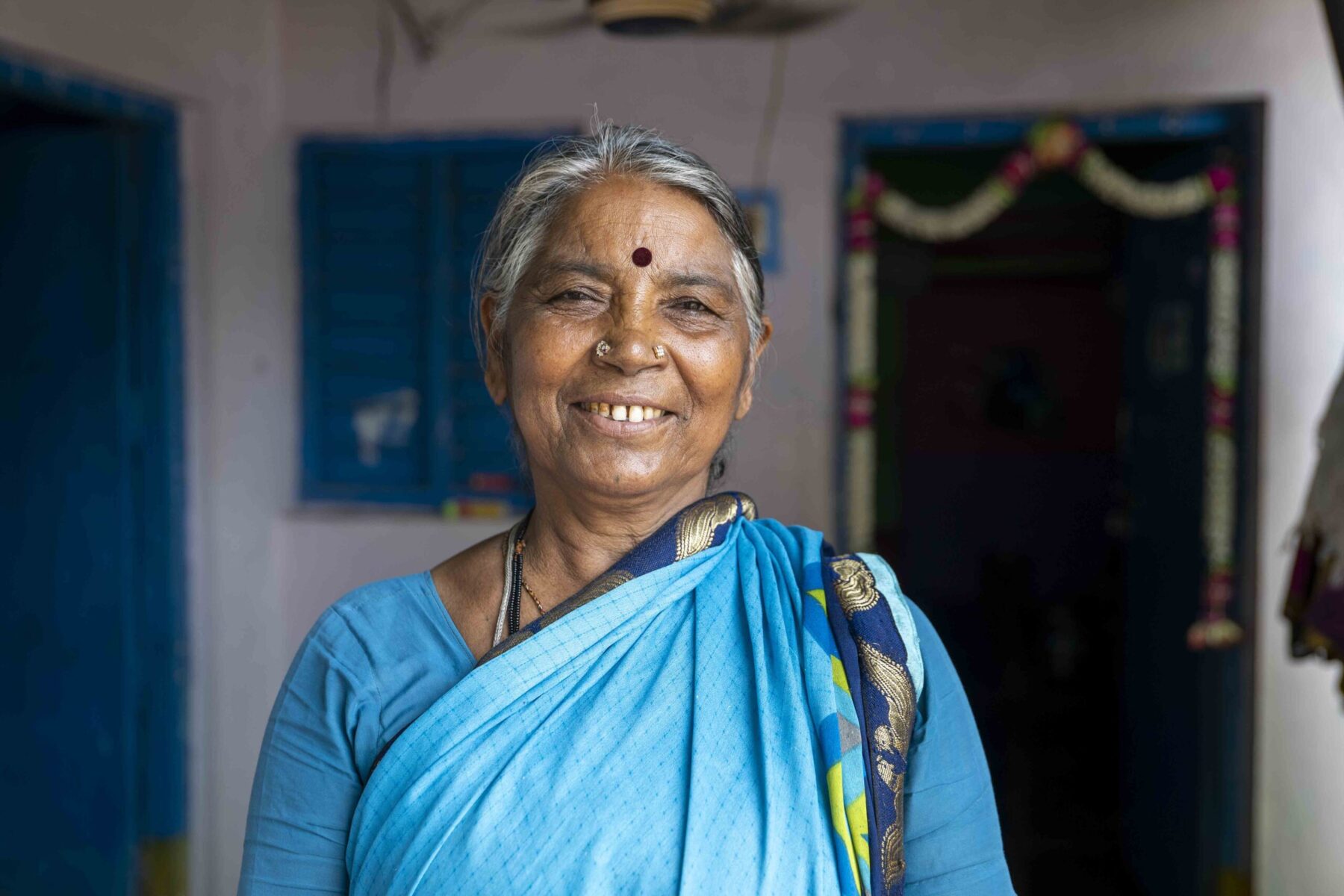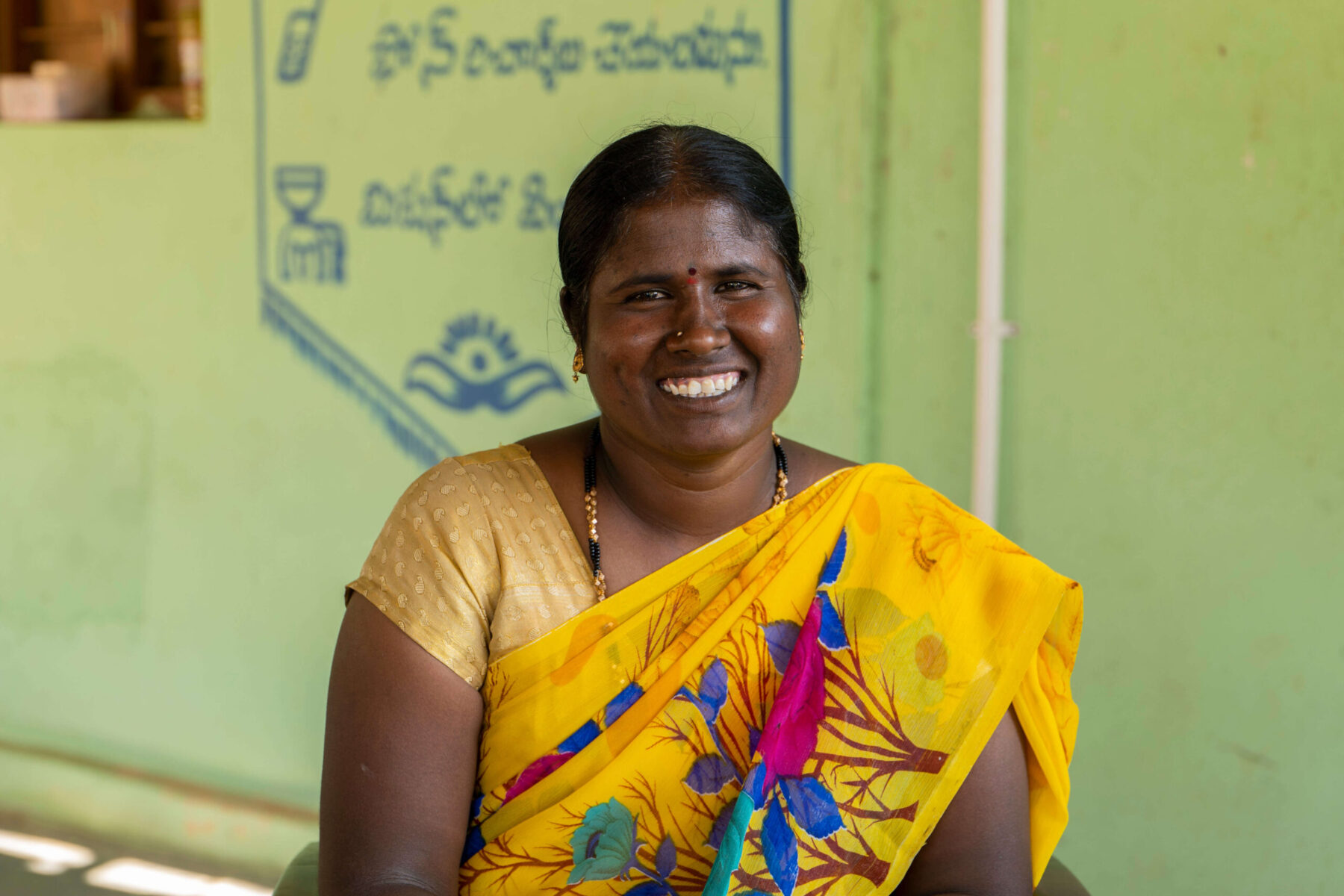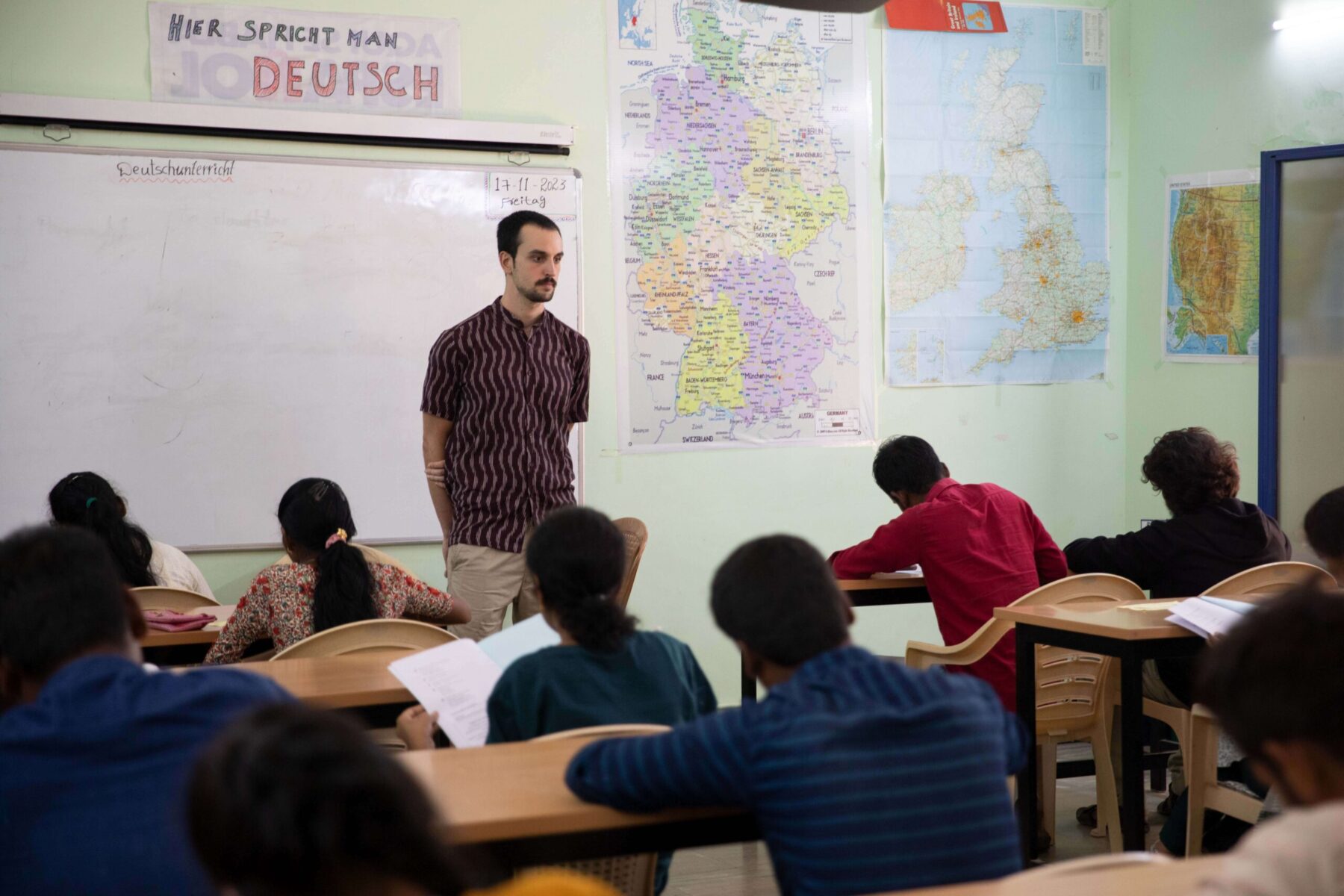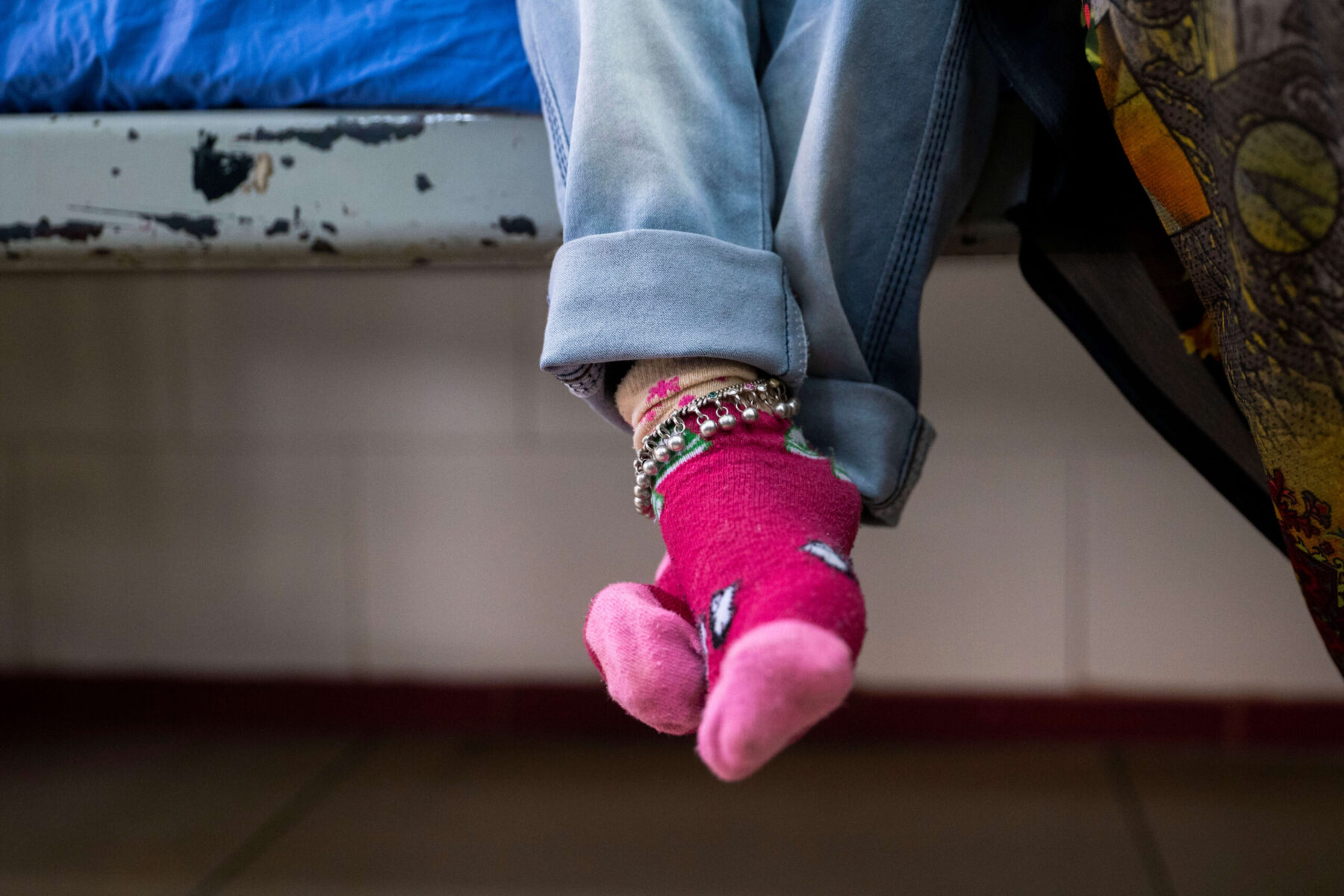In India, 75% of the healthcare infrastructure, including medical professionals, is concentrated in urban areas where only 27% of the total Indian population lives. The remaining 73% of the population lacks adequate medical facilities fuelling one of the worst consequences of poverty: poor health and constant illnesses.
To address this gap, in 1978, RDT started its first rural clinic and its work with the rural communities to improve the awareness but that was not enough.
Vicente Ferrer and Anne Ferrer, RDT founders, had a dream: To build medical infrastructure in a rural area to be able to provide high quality healthcare at affordable cost. In brief, ensure that the rural population had access to the same quality healthcare available in urban areas.
On December 2000 this dream came true with the opening of the RDT Hospital, a 360-bedded secondary-level hospital in Bathalapalli with over 12 different departments such as Internal and Family medicine, General Surgery, Orthopaedics and Traumatology, Emergency Unit, Gynaecology and Obstetrics, Neonatology and Paediatrics among others. This hospital has played a crucial role in the current COVID-19 outbreak and here is its journey:
2000 – On 30th December, Bathalapallli Hospital is inaugurated by Vicente Ferrer, Anne Ferrer and Dr. Y. Bala Subbaiah. The journey just began.
2004 – RDT Nursing School was inaugurated with the goal to alleviate the lack of qualified medical staff. Around 45 new nurses have been graduating, every year, from this institution since then.
2006 – RDT started the Hospital for Infectious Diseases, also known as Care and Support Centre, to treat people living with HIV and Tuberculosis (TB). HID was the first private hospital to have an in-patient facility for HIV and TB and to be authorized to provide free second line antiretroviral treatment in India, after being recognized by as an ART+ Center by Andhra Pradesh State Aids Control Society (APSACS) through National Aids Control Organization (NACO).
2010 – A new Paediatric Unit is inaugurated and two years later, an Intensive Care Unit for children and new-borns is set up. Children’s health and wellbeing becomes a priority for the hospital.
2014 – A new Orthopaedic Traumatology Unit is set up to treat hundreds of patients on a daily basis. An orthopaedic workshop in the same campus provides the necessary appliances and aids.
2016 – The Indian Red Cross society recognises the remarkable service of Bathalapalli Hospital Blood blank functioning since 2003. That same year the APSACS recognises RDT for its services in Anti-Retroviral therapy and the best programme for the prevention of the vertical transmission of HIV/AIDS
2018 – Bathalapalli Paediatrics Unit in Bathalapalli recognized by the National Neonatology Forum of India for the quality of its infrastructures and treated 2,768 patients of which 40% were females. RDT’s Hospital for Infectious Diseases establishes a new Mycobacteriology Lab. The second such laboratory with these facilities in the entire state of Andhra Pradesh.
2019 – Bathalapalli Hospital accredited as Dr. YSR Aarogyasri reference centre by the government of Andhra Pradesh.
2020 – Bathalapalli Hospital becomes one of the first centres in the district of Ananthapuramu to be designated as a COVID-19 Hospital by the District Collector, Sri Gandham Chandrudu. Also RDT Mycobacteriology Laboratory, used until then for testing drug-resistant tuberculosis (TB), started functioning as a COVID-19 testing centre.

